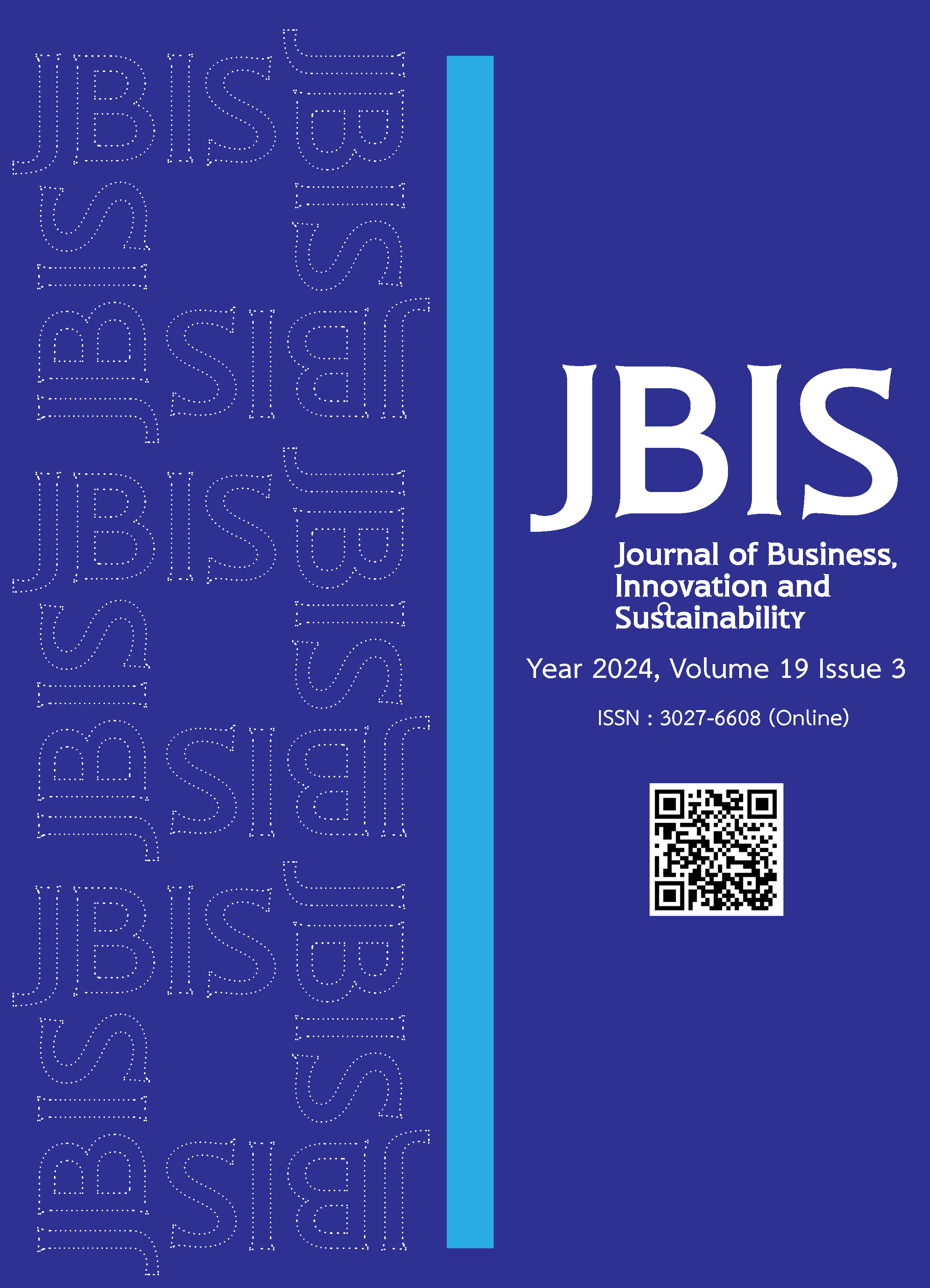Factors Affecting Social Commerce Victimization of a Thai University’s Students
Main Article Content
บทคัดย่อ
This research examines victimization in social commerce among undergraduate students by employing quantitative analytical methods on a survey of 400 participants. The study explores how demographic characteristics, purchasing behaviors including order frequency and value, decision-making factors such as vendor trustworthiness, recognized social value, and awareness of others’ victimization, along with risk perceptions including product feature, financial, psychological, and privacy risks, affect victimization rates and financial consequences. Utilizing both descriptive and inferential statistical techniques, such as Pearson correlation coefficients and multiple regression, the study identifies significant relationships. It reveals that factors like order value significantly impact financial losses, whereas vendor trustworthiness has minimal effect. Additionally, the research employs causal regression-based forecasting to recommend future spending limits based on past victimization experiences, aiming to enhance online financial safety. The findings underscore the urgency of developing targeted educational programs and government-led initiatives to foster safer online behaviors, highlighting the complex nature of social commerce victimization and advocating for comprehensive strategies to mitigate its effects.
Article Details

อนุญาตภายใต้เงื่อนไข Creative Commons Attribution-NonCommercial-NoDerivatives 4.0 International License.
เอกสารอ้างอิง
Anothip, N. (2013). A study of risk perception in becoming victims of crime from social commerce businesses. Independent study, M.B.A., Stamford International University, Bangkok.
Bauer, R. (1960). Consumer behavior as risk taking. In R. S. Hancock (Ed.), Dynamic Marketing for a Changing World (pp. 389-398). Chicago: American Marketing Association.
Cox, D. and Rich, S. (1964). Perceived risk and consumer decision-making – The case of the telephone shopping. Journal of Market Research, 1(4), 32-39.
DataReportal. (February 23, 2023). Digital 2024 : Thailand. Retrieved April 3, 2024, from https://datareportal.com/reports/digital-2024-thailand
Electronic Transactions Development Agency. (2022). Value of e-commerce survey Thailand 2022. Retrieved September 24, 2023, from https://www.etda.or.th/th/Useful-Resource/documents-for-download.aspx/
Forsythe, S. M. and Shi, B. (2003). Consumer patronage and risk perceptions in Internet shopping. Journal of Business Research, 56(11), 867-875.
Griffin, A. and Viehland, D. (August 3-5, 2011). Demographic factors in assessing perceived risk in online shopping. In The 13th International Conference on Electronic Commerce (pp. 1-6). New York: Association for Computing Machinery.
Hirankasi, P. and Klungjaturavet, C. (September 29, 2021). Social commerce: The new wave of electronic commerce. Retrieved October 31, 2022, from https://www.krungsri.com/th/research/research-intelligence/social-commerce-21
Jacoby, J. and Kapland, L. B. (November 2-5,1972). The components of perceived risk. In The Third Annual Convention of the Assoclation for Consumer Reseaxch (pp. 382-393), Chicago: Association for Consumer Research.
Kiadrasamee, J. (2015). Factor affecting the decision making on purchasing products from the online application in Bangkok metropolitan region. Master thesis, M.B.A., Thammasat University, Bangkok.
Kutin, M. (2016). Pereived risk on buying online shopping of generation Y in Muang Suratthani. Master thesis, M.B.A., Prince of Songkla University, Suratthani.
Mitchell, T. R. (1982). Motivation: New directions for theory, research, and practice. Academy of Management Review, 7(1), 80-88.
Photjanalawan, P. (2017). Factors affecting to be economic crime victimization: A case study of the pyramid schemes. Master thesis, M.A., Chulalongkorn University, Bangkok.
Sims, J. and Xu, L. (March 26-28, 2012). Perceived risk of online shopping: Differences between the UK and China. In UK Academy for Information Systems 17th Annual Conference 2012 (p. 25). Oxford: UK Academy of Information Systems.
Suchitt, J. (2021). Victimization of e-commerce beauty products trading. Master thesis, M.A., Chulalongkorn University, Bangkok.
Sutthisirimongkol, R. (2019). Factors influencing the purehasing decision of Bangkolians in the digital era to shop. Bangkok: Siam University.
Thaweerat, P. (1997). Behavioral and social research methodology. Bangkok: Srinakharinwirot University Prasanmirt.
The Bureau of Registration Administration. (2024). Official statistics registration systems. Retrieved April 3, 2024, from https://stat.bora.dopa.go.th/stat/statnew/statMenu/newStat/stat/
Tuachob, S. (2019). Undergraduate student’s buying behavior of products through online applications in Phutthamonthon District Nakhon Pathom province. Academic Journal Bangkokthonburi University, 8(2), 195-205.


